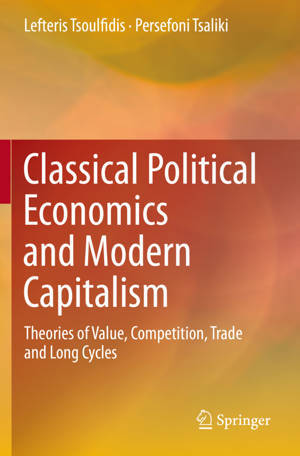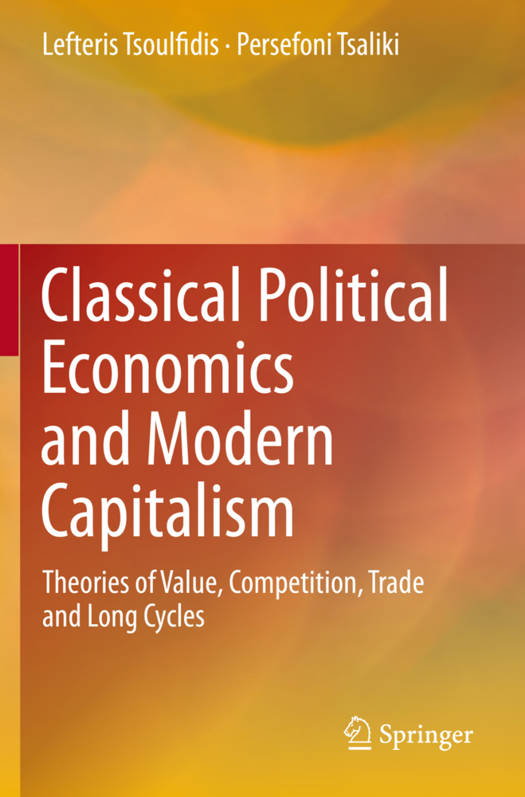
- Retrait gratuit dans votre magasin Club
- 7.000.000 titres dans notre catalogue
- Payer en toute sécurité
- Toujours un magasin près de chez vous
- Retrait gratuit dans votre magasin Club
- 7.000.0000 titres dans notre catalogue
- Payer en toute sécurité
- Toujours un magasin près de chez vous
Classical Political Economics and Modern Capitalism
Theories of Value, Competition, Trade and Long Cycles
Lefteris Tsoulfidis, Persefoni TsalikiDescription
This book promotes an in-depth understanding of the key mechanisms that govern the functioning of capitalist economies, pursuing a Classical Political Economics approach to do so. It explores central theoretical issues addressed by the classical economists Smith and Ricardo, as well as Marx, while also operationalizing more recent theoretical developments inspired by the works of Sraffa and other modern classical economists, using actual data from major economies.
On the basis of this approach, the book subsequently provides alternative explanations for various microeconomic issues such as the determination of equilibrium prices and their movement induced by changes in income distribution; the dynamics of competition of firms within and between industries; the law of tendential equalization of interindustry profit rates; and international exchanges and transfers of value; as well as macroeconomic issues concerning capital accumulation and cyclical economic growth.
Given its scope, the book will benefit all researchers, students, and policymakers seeking new explanations for observed phenomena and interested in the mechanisms that give rise to surface economic categories, such as prices, profits, the unemployment rate, interest rates, and long economic cycles.
Spécifications
Parties prenantes
- Auteur(s) :
- Editeur:
Contenu
- Nombre de pages :
- 456
- Langue:
- Anglais
Caractéristiques
- EAN:
- 9783030179694
- Date de parution :
- 20-09-20
- Format:
- Livre broché
- Format numérique:
- Trade paperback (VS)
- Dimensions :
- 156 mm x 234 mm
- Poids :
- 662 g

Les avis
Nous publions uniquement les avis qui respectent les conditions requises. Consultez nos conditions pour les avis.






